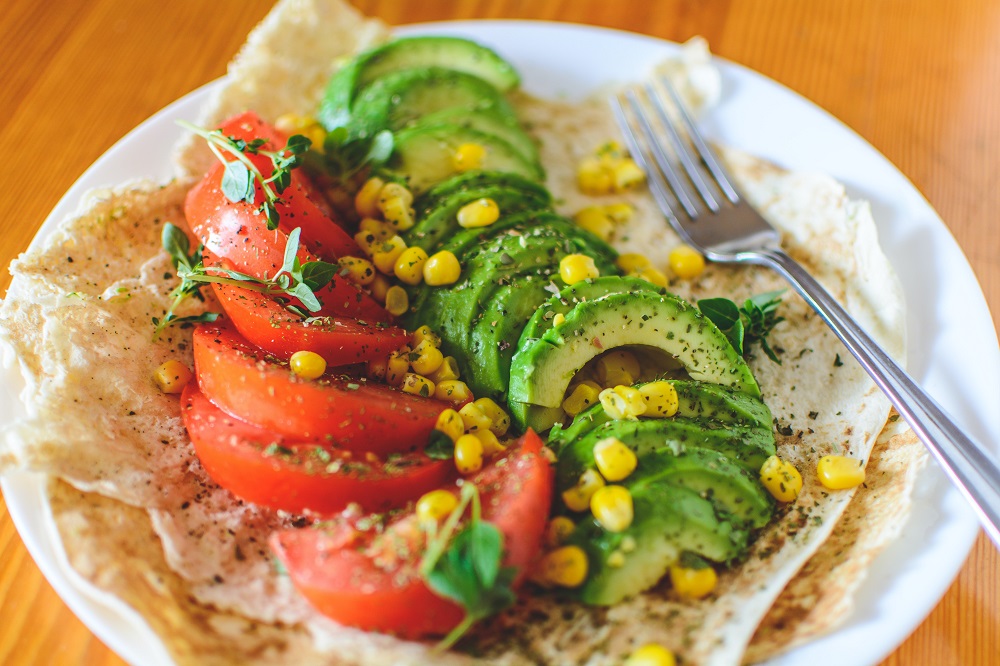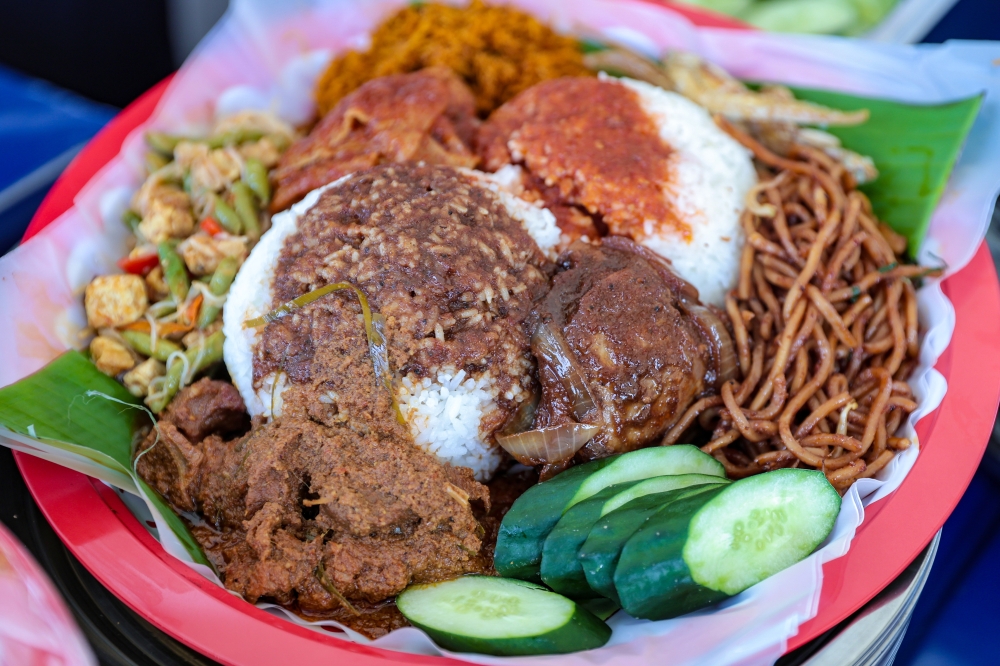KUALA LUMPUR, April 15 — There are always never-ending arguments among health freaks about which diet is the best.
However, health and nutrition experts have always highlighted that diets focusing on fresh, whole ingredients are superior for overall health and wellness.
And it seems, plant-based diet does just that.
According to dietitian Goo Chui Hoong, a plant-based diet is not only a popular option, it is also supported by science.
As the name dictates, Goo said a plant-based diet is based on food derived mainly from fruits, vegetables, whole grains, legumes, nuts and seeds, with little or few animal products.
“You would have probably heard of such terms as flexitarian, vegetarian (lacto-, ovo-, lacto-ovo-) and vegan which are all permutations of plant-based diets.”
But, Goo said flexitarianism is the most liberal form of plant-based diet.
According to her, flexitarians follow a predominantly plant-based diet that occasionally but moderately allows meat in their diet.
“Lacto-vegetarian diets are centreed on plant foods but include dairy products.
“Ovo-vegetarians, on the other hand, consume plant foods and eggs. Lacto-ovo-vegetarians are vegetarians who include eggs and dairy products,” said Goo, who is the author of three books including the award-winning Food for your eyes and Lite Malaysian Favourites.
When it comes to vegans, Goo said they are the strictest of the lot in which they only consume plant foods.
“Being the most restrictive type of plant-based diet means it runs the highest risk of nutrient deficiencies if the diet is not well balanced.”

Why go on a plant-based diet?
Goo said plant-based diets are beneficial to health because they are high in fibre, vitamins and minerals while being low in saturated fat.
Because of that, she said it helps you manage your weight and may reduce the risk of Type 2 diabetes, cardiovascular disease and some cancers.
“Some high fibre foods also have a lower glycaemic index (GI) which means they provide a slow release of carbohydrate into the blood and help with Type 2 diabetes management.
“The combined effect of fibre and low GI may help keep you feeling full for longer.”
Goo said the effect helps you snack less and consume a less calorific meal which is what you would want to do to control your weight.
She also noted that a plant-based diet tends to have less fat and saturated fat.
Hence, cutting down on saturated fat intake — by substituting with polyunsaturated fats or complex carbohydrates — reduces the risk of heart disease and stroke.
“Plant-based diets also get brownie points for cancer prevention, especially colon cancer.
“Dietary fibre in plant-based foods prevents constipation and provides energy for good bacteria in the gastrointestinal tract.”
Despite its many benefits, Goo said plant-based diets which are not well-planned are often questioned on the sufficiency of energy and protein.
To better help you plan your diet, here’s Good’s low-down on some nutrients you should pay attention to when considering a plant-based diet:
Protein
Gym-goers know that protein is essential for building muscle tissue and repairing cells.
However, Goo said plant-based protein does not provide a complete source of essential amino acids, unlike meat-based protein.
“In order to provide all the different essential amino acids, it is important to have a variety of plant-based sources of protein including lentils, beans, chickpeas, seeds, nuts and nut butters as well as tofu.
She said there are a multitude of plant-based meat alternatives such as those based on fungal protein like mushroom, wheat gluten, soy and pea/mung bean which are useful when adapting to a meatless diet.
Calcium
An important mineral for bone health, Goo said adults require 1,000 mg of calcium per day, which is easily achieved by consuming dairy products like two to three cups of milk a day.
However, she said if you do not consume dairy products, you would need to substitute with foods such as calcium-set tofu, green vegetables like broccoli, cabbage or okra, dried fruits like raisins, prunes or dried apricot and fortified plant-based milk alternatives.
“These plant-based milk options are also used to make vegan cheese, vegan yoghurt and dairy-free beverages.
“Pairing your meals with dairy-free beverages is a small but impactful way to start a plant-based diet.”
Goo said popular brands have begun to introduce dairy-free alternatives in their ready-to-drink range, which are worth checking them out in your next grocery run.
Iron
Ensure you get adequate iron to avoid anaemia or deficiency of the red pigment in red blood cells.
Goo said plant-based iron sources are of the non-heme variety.
“This means the type of iron found in plant-based foods like beans, lentils, nuts and leafy greens are less readily absorbed compared to the heme variety found in animal-based foods.
“To overcome this, it is best to consume the plant-based iron source together with a vitamin-C-rich source to help with the absorption of iron.”
She said a good example of how to put this into practice is to have a glass of freshly squeezed orange juice the next time you have a meal with lentils, tofu, nuts or seeds.
Vitamin B12
Vitamin B12 deficiency, on the other hand, can cause anaemia, fatigue and numbness of extremities.
Goo said the nutrient is found mainly in animal sources.
“If you follow a strict plant-based diet, you will need to consume food such as fortified cereals, tempeh, nutritional yeast, fortified plant-milk, mushrooms or vitamin B12 supplements to avoid this nutrient deficiency.”
Omega-3 fatty acid
The omega-3 fatty acid is beneficial to heart health.
According to Goo plant-based sources of omega-3 fatty acids include flaxseed, walnuts and rapeseed.
“Choose cooking oils made with these and sprinkle some of these nuts or seeds in your breakfast cereal or smoothie.”
Example of plant-based meal plan
Goo said embarking on a plant-based diet is not difficult.
She said there are vegan options for everything, from vegan mayonnaise to vegan bak kwa (meat jerky).
Here are some of Goo’s ideas for a plant-based meal plan:
Breakfast:
Tosai with dhal curry
Or wholemeal bread with nut butter or avocado slices
Or a drink/smoothie with a plant-based milk alternative
Lunch:
Gado-gado salad with tempeh
Or soupy noodles with pak choy, seaweed, mushrooms and fried fuchok skin
Or turmeric fried rice with tofu, beans, and carrots
Mid-afternoon snack
Banana smoothie made with a plant-based milk alternative
Or handful of mixed nuts and dried fruits
Dinner:
Chapati with chickpea curry, stir-fried okra
Or multigrain rice with steamed tofu with chopped french beans, stir-fried mixed vegetables with macadamia nuts
Or multigrain rice with okra, brinjal and long bean curry, stir-fried cabbage





















